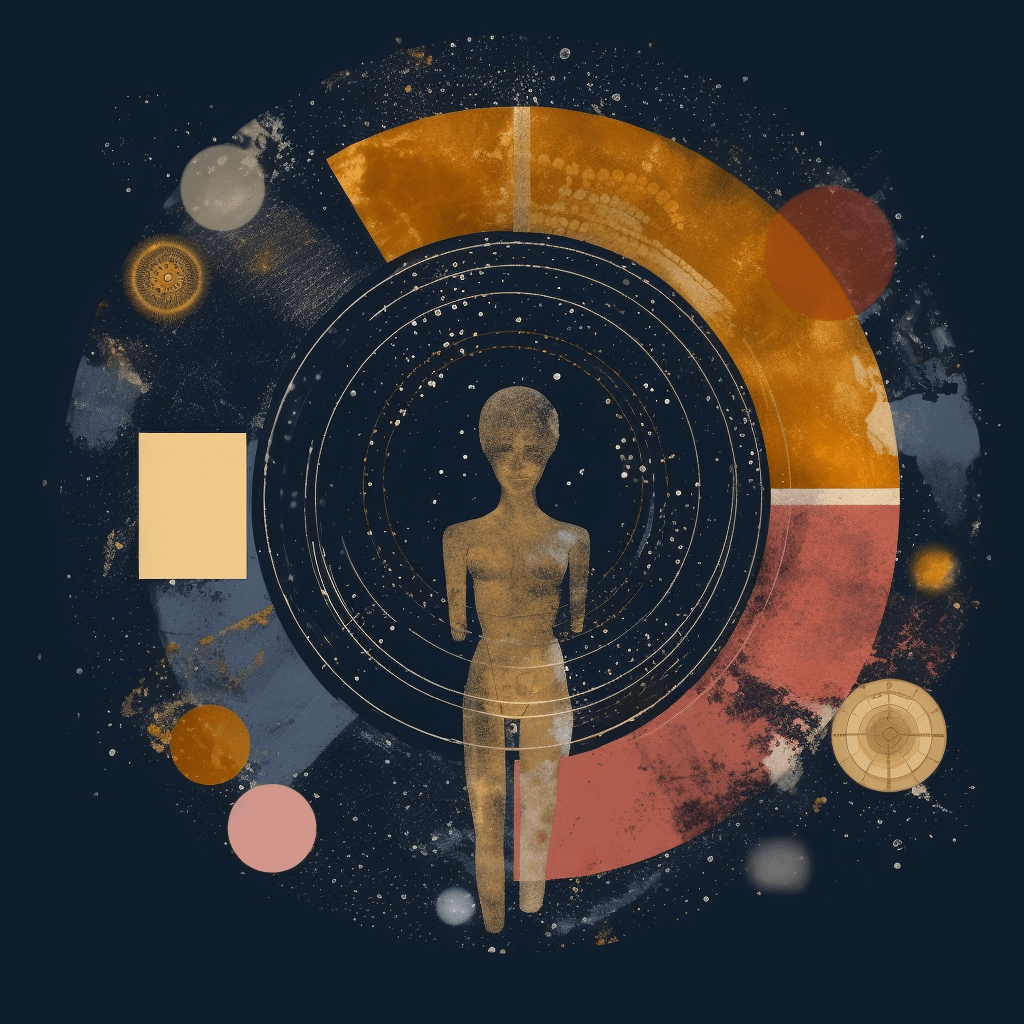On Generosity, Openness, and Deep Listening
What is meant by "openness"? Buddha Dharma offers various interpretations. It can be viewed as a spirit of generosity, a state of non-bias or non-judgment, or a feeling of spaciousness that reduces the barriers between ourselves and others. While practicing openness, discernment is not abandoned; instead, it is incorporated.
We Become the Stories We Weave
Our stories are how we make sense of our internal and external worlds, the way we weave our thoughts, both consciously and unconsciously, how we talk about ourselves, how we talk about others, how we frame a certain situation or experience we have or a memory. I think we can look at all of this as forms of story, forms of narratives. These narratives are how we often make sense of a situation that happened to us, a memory, something that's going to happen in the future or happening currently.
Understanding the Mind: A Buddhist Lens
The subject of mind in Buddhism is extensive. A significant portion of the Buddhist Canon revolves around the inquiry into what the mind is and how to skillfully use it to reduce suffering, attain awakening, freedom, and enlightenment. It's a substantial question, and in this discussion, I aim to provide some perspectives, not exhaustively, but by sharing ideas that I find helpful within the Buddhist framework.
Key Steps for Developing More Friendliness Towards Your Emotions
The basic idea here is that friendliness is a form of welcoming, kindness, and not trying to control or manipulate something. Just like how we would treat a friend or how we would want to be treated as a friend. We don't want to be talked down to, pushed away, or ignored. We want to be met with warmth and kindness.
Everyday Meditation: How to Incorporate Mindfulness Into Daily Activities
We need to remember that our mindful awareness isn't something to be treated with excessive formality or sanctity. Instead, it's more like ringing a bell – when we ring it, the sound continues, and we let it resonate for as long as it does. Sometimes it's short, sometimes long, and that's perfectly okay. This approach shows our respect for mindful awareness, as we invest energy in cultivating it because we value it.
From Stillness to Spaciousness: A Different Approach to Meditation
Stillness itself won't undo any of it. It just freezes everything. So, the more we cultivate stillness, the more we're able to enter this experience that's calm and open, but everything's frozen. It's not that we’ve liberated ourselves from emotional reactions and thoughts. It's that we've temporarily put them on pause. We've frozen them, and that can give the illusion that we are free. So, this is where the danger of stillness comes.
Your Life, Your Meditation Cave: Awakening to the Present Moment
Aspirations are vital in this journey. Fantasies, on the other hand, can be detrimental. If we constantly fantasize that practice will happen later, or we need specific conditions or a perfect meditation space to progress, it may not be healthy. However, if these fantasies lead to aspirations to deepen our connection with the Dharma and the mind of awakening, then they serve a positive purpose.
Opening the Heart Also Means Healing the Heart
It's not about perfecting ourselves but recognizing that we are beyond perfection or imperfection. This recognition must be experiential, as through directly experiencing and embodying our basic okayness we can truly heal and reconnect.
Monastic vs. Householder Life: Meditation in the Midst of Modern Chaos
As a practitioner of the Buddhist path, I have often grappled with the question of how to authentically practice the Dharma while living a householder's life. Recently, a student approached me with a similar dilemma. She expressed her desire to practice the Dharma authentically, but felt that it was challenging to do so while juggling the responsibilities of a family.
What Does It Mean To Embody the Dharma?
When we understand cause and effect, when we understand the mind in this way, when we understand that what we think, what we say, and how we act matters and affects the mind, and ultimately affects whether we're free or not, then we start to become a Dharma person.
Why Your Meditation Isn't Working: The Four Missing Keys
These four keys are a distillation of common blocks I've observed in mentees and students over the years. They're common points of stagnation where practice can slow or stagnate. They're also common points of confusion where, when one of these elements or approaches is missing, people often wonder why they're not progressing in practice or what's going wrong.
Meditation For the Long Game: A Guide to Sustainable Practice
Whether you're just dipping your toes into the world of meditation or you've been at it for years, you're bound to face your own set of challenges. But here's the thing, embracing the idea of being in it for the long game, it's not just an attitude, it's an intention. An intention that can really shape your meditation journey in a positive way, making it more sustainable and meaningful.
Meditation and the Mind's Projection: How Thoughts Shape Our Reality
I'd like to share a few words on how our thoughts may shape our world. I say 'may' because I'd like to offer some reflections for you, the reader, on how this might be the case and how you might go about reflecting on that.
Cultivating Wisdom Is More Important Than Ever
With the proliferation of AI tools, our relationship to knowledge, information, and wisdom is going to start to change. There's this desert, this dry, arid place we take to be wisdom, but it's not wisdom, it's fake wisdom. Information, even including this writing, is not wisdom. It's just something we can take away, develop a connection to, and mine our own wisdom with.
We Are Not a Self-Improvement Project
When we try to improve ourselves, which self are we trying to improve? This is an interesting question because we often perceive ourselves as a singular, permanent entity. But when we look back at our lives, we see that our sense of self is made up of a series of different causes, conditions, moods, thoughts, and beliefs.
How and Why Do Buddhists Meditate?
In general, across various forms of Buddhism, the reasons why people meditate and why meditation is an integral part of the practice are rooted in the early or foundational teachings of the Buddha. These teachings describe two opposing ways to live or two opposing views.
The Thirty-Seven Practices Of A Bodhisattva: Verse One
In preparation for the upcoming Summer session (starts June 7th, 2023) of our Group Mentoring Membership program, I would like to share some thoughts on the seminal Tibetan Buddhist text, the Thirty-Seven practices of a Bodhisattva. This text, written by a 14th-century Tibetan monk and scholar named Tokme Zangpo, is a mind-training or Lojong text. It has been taught and commented on by Tibetan Buddhist Masters for centuries.
Living From a Sense of Call and Response
As we learn to let go of the judger or the commentator, we can listen to the raw sound of our experience, whether it is internal or external. We can be more attuned to people around us, the energy in the room, and the body language of people. This deep listening provides us with more agency and efficacy in how we respond to a particular situation, whether we are alone with ourselves and a thought or emotion or with others. Therefore, this practice is essential to finding more joy, connection, and harmonious relationships in our lives.
The Intersection Of Creativity and Dharma
Sometimes, people think that “being creative” means coming up with something completely new, but I believe that creativity actually comes from engaging with a structure or a path, transforming oneself, and then allowing that transformation to shine naturally. Initially this perspective was challenging for me because I didn't know how to adopt or work with the structures and ideas that are taught in Buddhism without either turning them into fixed beliefs on one side, or a self-affirming “It’s my truth, man,” kind of spirituality on the other.
Find Freedom Through Curiosity
I often refer to curiosity as bringing more fluidity into life. Here, fluidity is not just a feeling, but an experience of being more open to ourselves and the circumstances around us. It's about allowing life to happen, being present and responsive to it, and having an active relationship with it.





















